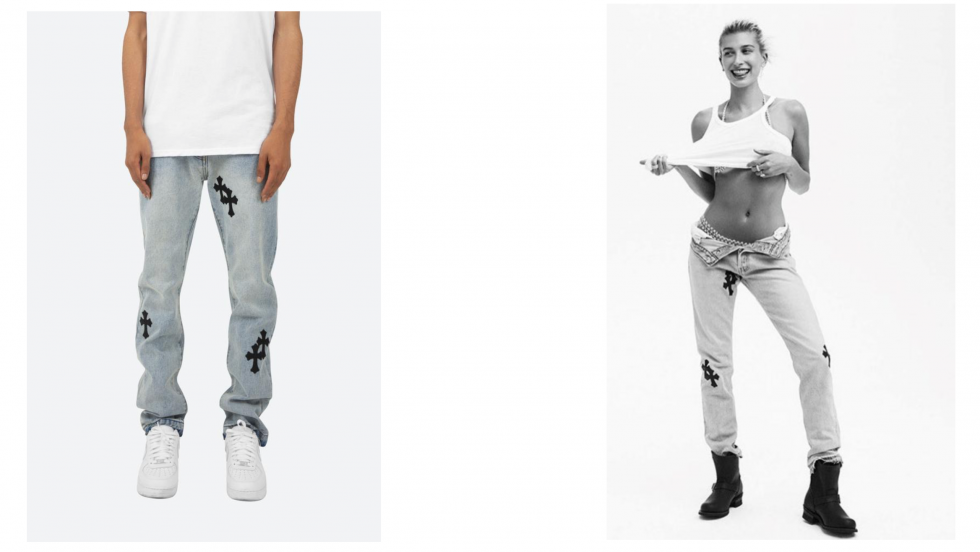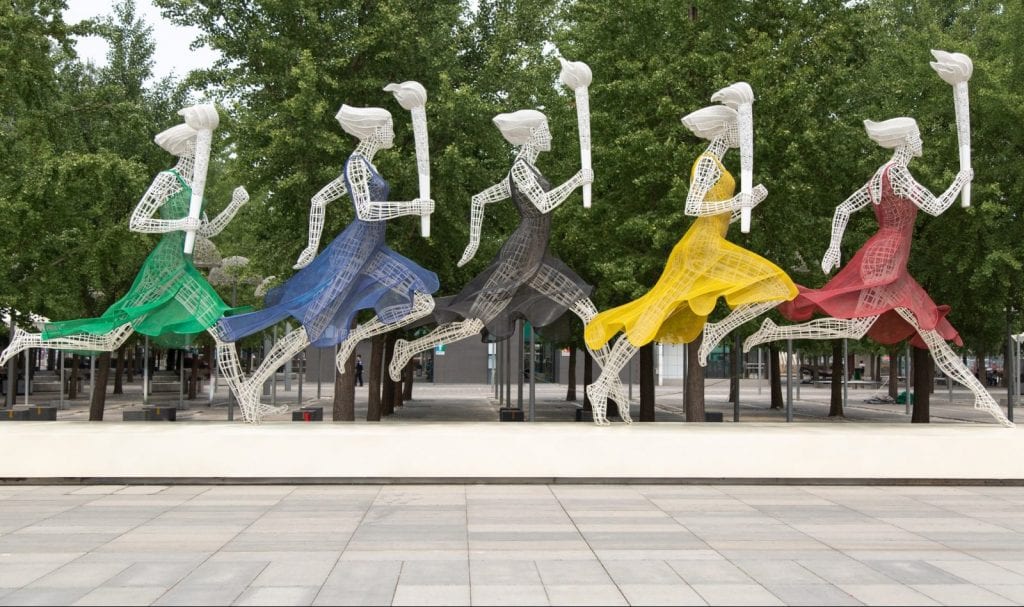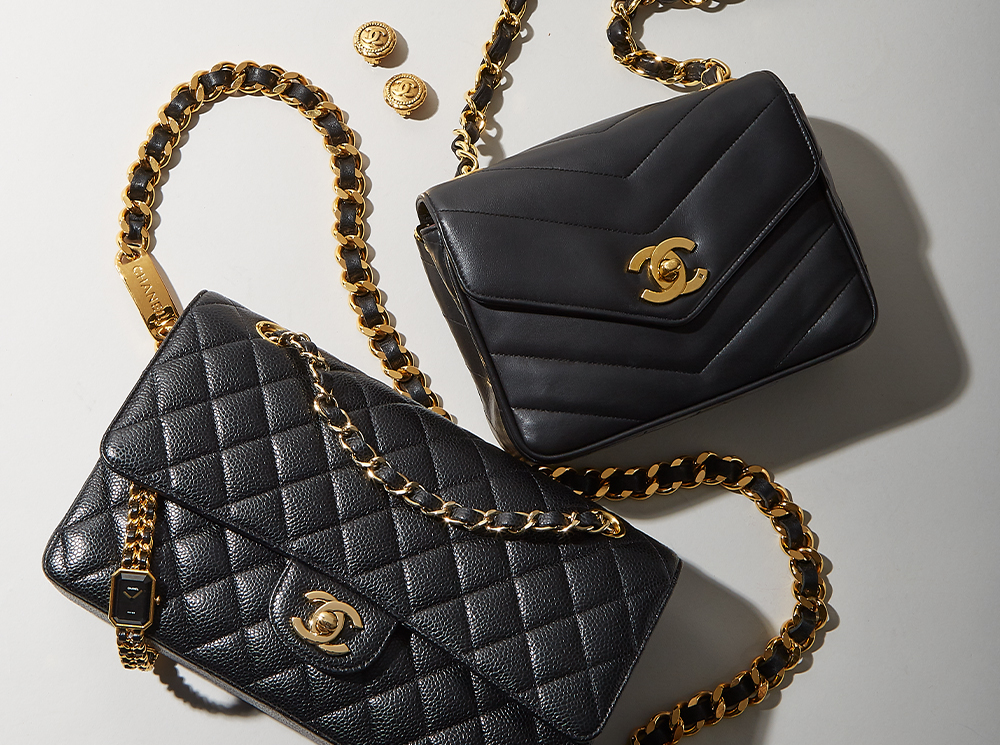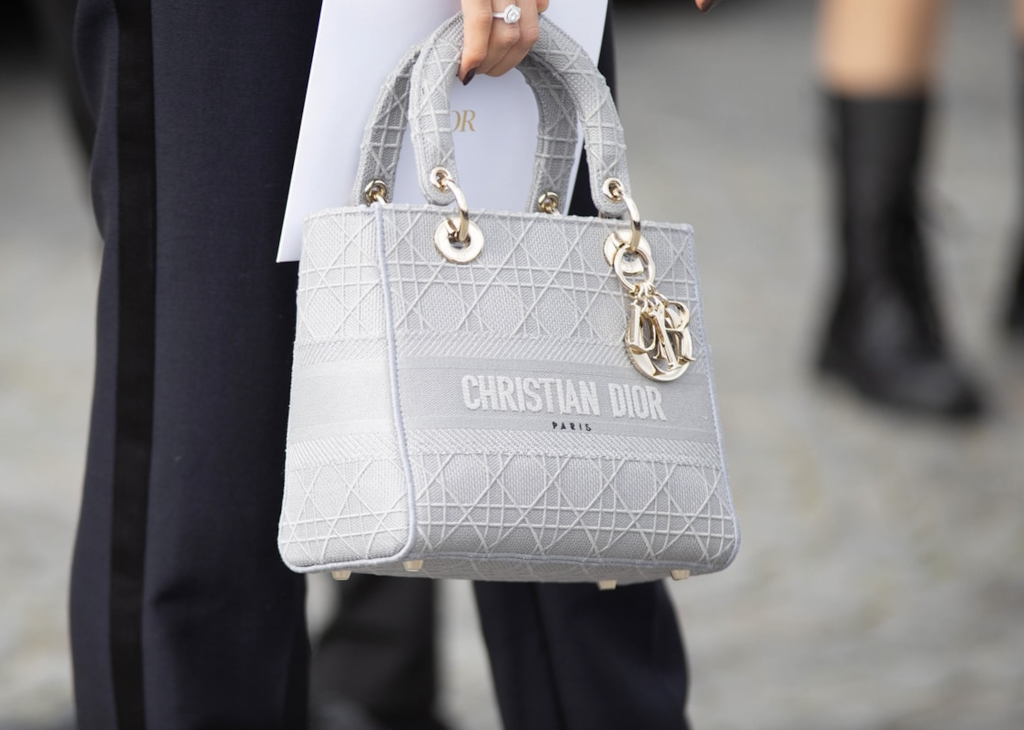MNML has responded to the lawsuit that Chrome Hearts filed against it for allegedly adorning its jeans with one of Chrome Hearts’ “most iconic and well recognized trademarks” in an effort to confuse consumers as to the source of its allegedly infringing wares. In the answer that filed it in a federal court in California last week, MNML – or better yet, MNML’s corporate entity, Third Estate LLC – “denies that it engaged in any wrongful conduct,” and sets out a host of affirmative defenses, including one in which it accuses Chrome Hearts of engaging in fraud.
According to the newly-filed answer, Third Estate asserts that Chrome Hearts – which set forth claims of trademark infringement and unfair competition in its April 2020 lawsuit – has failed to state claims upon which relief can be granted and thus, “denies that [Chrome Hearts] is entitled to the requested relief or any relief” at all. Specifically, counsel for Third Estate argues that Chrome Hearts “has no protectable trademark rights” in the cross symbol for a number of reasons, including the (alleged) fact that the cross mark is “ornamental, consists of a generic design used by the public at large in ornamental fashion, and fails to function as a trademark.”
More than that, Third Estate argues that even if Chrome Hearts’ Celtic cross-inspired mark is capable of indicating a single source of products (and thus, serves as a trademark), those rights lapsed when Chrome Hearts “abandoned” them as a result of its “failure to police [others’ unauthorized uses of the mark], failure to use the alleged mark on a consistent and continuous basis [since it first started using the mark in 1989], and through acts of omission or commission that have cause the claimed mark to lose its significance as an alleged trademark.”
Still yet, Third Estate claims that Chrome Hearts’ trademark-specific problems are even more fundamental than that. According to the fast fashion streetwear brand, Chrome Hearts’ mark is “invalid and unenforceable due to [the Los Angeles-based brand’s] improper and fraudulent and inequitable conduct before the U.S. Patent and Trademark Office” (“USPTO”). To be exact, Third Estate alleges that Chrome Hearts “procured its trademark registration [for the cross] with the intent to deceive the USPTO,” as the specimen it submitted in connection with its 2013 application “consist of hangtags, and not of ornamental designs on jeans, as is alleged in the complaint.”
Such a discrepancy gives rise to fraud, according to counsel for Third Estate.

In terms of whether Chrome Hearts’ submission of a specimen (i.e., a required sample that shows how the trademark for which a party is seeking a registration is used in commerce) in the form of a hangtag, as opposed to one that depicts the use of the mark on denim or another garment, actually amounts to fraud on behalf of Chrome Hearts, that seems at least somewhat unlikely.
As the USPTO states in its Trademark Manual of Examining Procedure, “A specimen must show the mark as used on or in connection with the goods in commerce.” For the trademark at issue, the goods, according to Chrome Hearts’ trademark registration, are “Clothing, namely, tee shirts, shirts, tank tops, sweat shirts, sweat pants, vests, sweaters, jeans, pants, chaps, dresses, skirts, jackets, coats, underwear, swimwear, hats, socks and footwear.”
The USPTO states in its manual that “in most cases, if a trademark is ordinarily applied to the goods or the containers for the goods by means of labels, a label” – or a “tag, or container for the goods, or a display associated with the goods” – is “an acceptable specimen,” thereby, suggesting that Chrome Hearts’ submission of a hang tag that depicts the cross mark is, in fact, a sufficient specimen. The trademark office further states in its manual that “the specimen must show the mark as used on or in connection with the goods in commerce,” which is presumably what the hang tag that Chrome Hearts uses and submitted with its application shows.
It seems that fraud would come into play not if Chrome Hearts was not actually using a cross-adorned hang tag, such as the one that it submitted to the USPTO, in connection with its garments, which Third Estate does not explicitly claim. Instead, Third Estate seems to suggest that Chrome Hearts has engaged in fraud by using its mark beyondwhat the initial specimen showed, which is interesting, as the USPTO does not require that specimens submitted with an application for registration must depict alluses of a the mark in connection with the goods/services at issue.
After all, the USPTO’s manual requires that “the specimen show the mark as used on or in connection with the goods in commerce,” and does not call for a showing of all uses in connection with the goods in commerce.
Interestingly, in making a claim of fraud, Third Estate does not set forth any counterclaims of its own, such as one seeking to have Chrome Hearts’ allegedly fraudulently-procured trademark registration cancelled. Instead, it has asked the court to ensure that “Chrome Hearts take nothing by way of its complaint and that the complaint be dismissed.”
UPDATED (July 21, 2020): On the heels of Chrome Hearts filing a notice of settlement and joint request to stay all dates with the court on July 20, Judge Philip Gutierrez of the U.S. District Court for the Central District of California ordered that “all proceedings, if any, [be] vacated and the action [be] dismissed without prejudice.” In its filing, Chrome Hearts alerted the court that the parties had “reached a settlement in principle” and that the terms of the settlement, which will presumably remain confidential, will be finalized, and a Stipulation of Dismissal of this action filed within thirty days.” In the meantime, it does appear as though the contested jeans have been removed from MNML’s e-commerce site.
*The case is Chrome Hearts LLC v. MNML Los Angeles LLC, 2:20-cv-03683 (C.D.Cal.)











